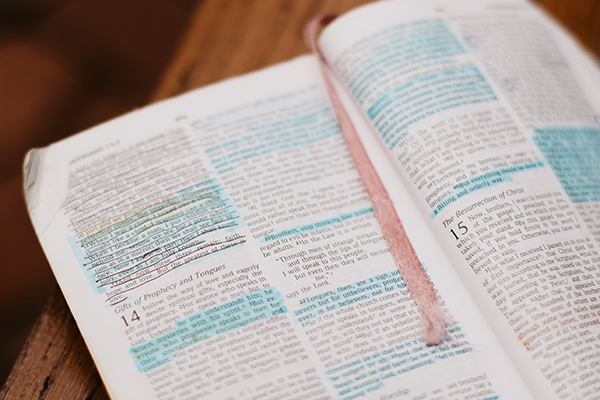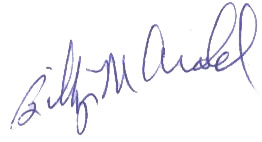Today I bring you Tip #5 in the “How to Read Your Bible” series. Scroll to the end for a full explanation of each previous tip.
TODAY’S FOCUS—
Tip #5: Mark up your Bible! Take notes!

This is one of my personal favorites. I love to mark up and write in my Bible. Now, I am a note-taker in most meetings. My notes are not always clean in form, but I get inspired and like to write stuff down because I forget so easily.
For me, the Bible is the most important place to write things down. It is God’s written Word, and when I read something, I often get inspired and like to jot down a note or a thought. I thoroughly believe that the Bible is written with this kind of inspiration in mind. It is God speaking. It is me listening to him when he speaks. In turn, he gets my mind to thinking or acting on something. I want to record that event.
When do you write in your Bible?
- I encourage you to write when you have a Bible study.
- I encourage you to write when you are listening to a sermon or message.
- I encourage you to write when you are reading the Bible in your quiet time.
So: Whenever you open your Bible, be prepared for God to speak, and be prepared to listen.
The Bible is Sacred
For those of you who like to keep a clean Bible, I am sort of sympathetic…maybe a little. But I challenge you with this. The Bible for sure is sacred, but it is sacred not because it has clean pages, but because it is the voice of God speaking to you. If you are ready to listen, then you need to have pen in hand, ready to write.
The Bible is a journal for your life
Over time, you will find your Bible (or Bibles, over the years) will be a living testimony of the journey that you have been on. When you write something in the margins of your Bible, please realize that you are not writing down holy Scripture, but you are writing down your journey of faith and knowledge in response to the Holy Scripture. This is a precious document. It is not only something that you can look back on over time and grow with, but it can be passed down to others along the way, an incredible legacy of faith.
Let me tell you a story:
I have an old Bible commentary book that I received from my dad years ago—a Barnes commentary of the four gospels. It is the oldest book in my library. My dad picked it up in October 1964. I know this because he wrote his name in the front with that date. I got it from him in 1987, and I recorded my own personal details. But the book itself was originally a gift to a Jane Burn Suter on the third of February 1857. (Yes, that’s 164 years ago and predates the American Civil War.) It is inscribed with the words, “A gift to Jane Burn Suter with her Father’s love.” I have no idea who Jane was…or who her father was (it would be an interesting research project, though). But what strikes me is that, at the end of the inscription, the father wrote to his daughter, “Acts 17:11,” which says:
“ Now the Berean Jews were of more noble character than those in Thessalonica, for they received the message with great eagerness and examined the Scriptures every day to see if what Paul said was true.”
This 164-year-old inscription is a testimony of two people dedicating their lives to digging deeper into God’s Word. I have been inspired for years now by this father’s and daughter’s testimony written in a Bible commentary. I want my Bible to be that kind of testimony—that kind of faith legacy. I urge you to consider that your physical Bible(s) can be and should be the same. (This is another reason why I challenge you to read a paper Bible regularly instead of just an electronic version.)
Write in your Bible!
MY PERSONAL DEVOTIONAL
A peek into Billy’s devotional thoughts this week
Each week I am giving you a little insight into my devotional life and reading, only to show you by example what you can and should do with your personal reading of God’s Word.
My current daily reading locations:
- Old Testament — 2 Samuel
- Gospels — Mark
- New Testament — 1 Corinthians
- Proverbs
A devotional from my reading this week:
Don’t Let Down my Guard: 2 Samuel 11
This is the chapter of the famous—or infamous—David and Bathsheba story. David, the appointed King of Israel, and Bathsheba, the wife of Uriah, a soldier in David’s army. I have known this story most of my life. But I am still struck with how far the famous can fall. The opening line of chapter 11 says, “In the spring of the year, when kings normally go out to war…” David stayed home. David took time off. David relaxed. David let others go to the front line while he tried to essentially “retire” from those duties. There is a great deal of history and cultural context here, but what screams out is that David let his guard down, not just physically, but emotionally and spiritually. And it was then that he so easily slipped into a secretive mode that led him to an adulterous act, an abusive power play as king over his subjects, and eventually even a murder acted out under his authority.
My take-away? There are many and the list is long. But in simple terms, I plead with God to help me remain clear-headed and pure-hearted.
My prayer:
- God, help me to guard my heart against a fall that could damage so many lives. Help me to not live secretly, which opens the door for the ambush of Satan (“Sin is crouching at the door, eager to control you” — Genesis 4:6).
- God, help me to stay humble under your mighty hand and not get caught up in the proud status that I so easily would like to live under (“Humble yourselves therefore under God’s mighty hand” — 1 Peter 5:6).
- God, forgive me and make me walk straight with you every morning (“Create in me a clean heart O God. Renew a right spirit in me” — Psalm 51:10, the psalm written by King David after he was caught in the lie of his adultery and murder).
Keep reading and poring over your Bible!

TIP #1: READ SYSTEMATICALLY AND SLOWLY
How to Read Your Bible (Part 1)
Don’t worry about reading for speed. Learn to set a reading habit for the rest of your life.
TIP #2: CHOOSE THE LOCATION OF WHERE TO REAd
How to Read Your Bible (Part 2)
Read the Bible in four locations:
- Old Testament
- Gospels
- New Testament
- Psalm
TIP #3: USE A STUDY BIBLE AS YOUR PRIMARY BIBLE TO READ FROM EACH DAY
How to Read Your Bible (Part 3)
Choose one of the many study Bibles, and make that study Bible your primary PAPER Bible to read each day until you have read the Bible through—then choose another one and start the process over.
Tip #4: Choose your Bible Translation
How to Read Your Bible (Part 4)
Choose from the reliable list of translations—but pick one and start reading! Over the years, read from other English translations.